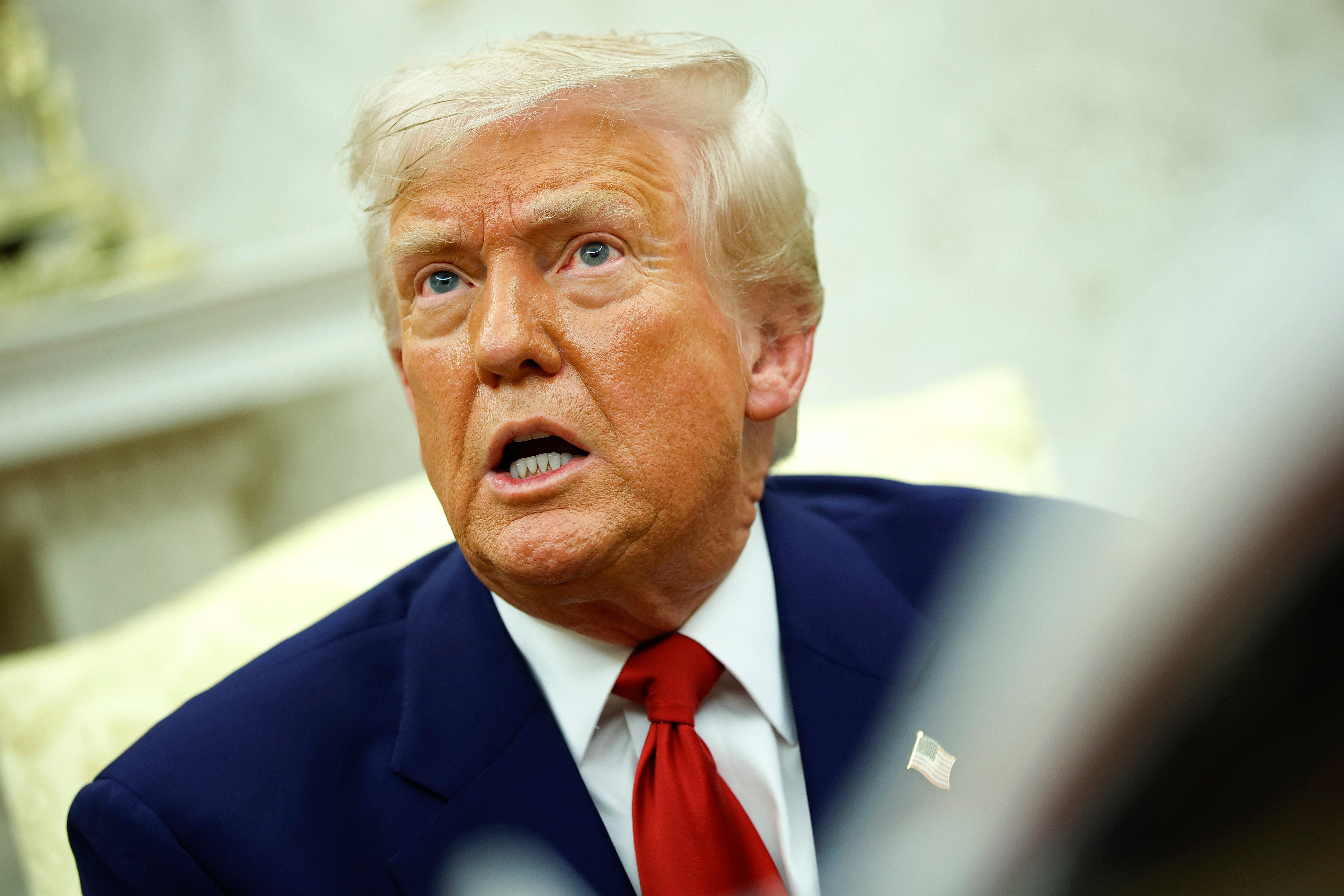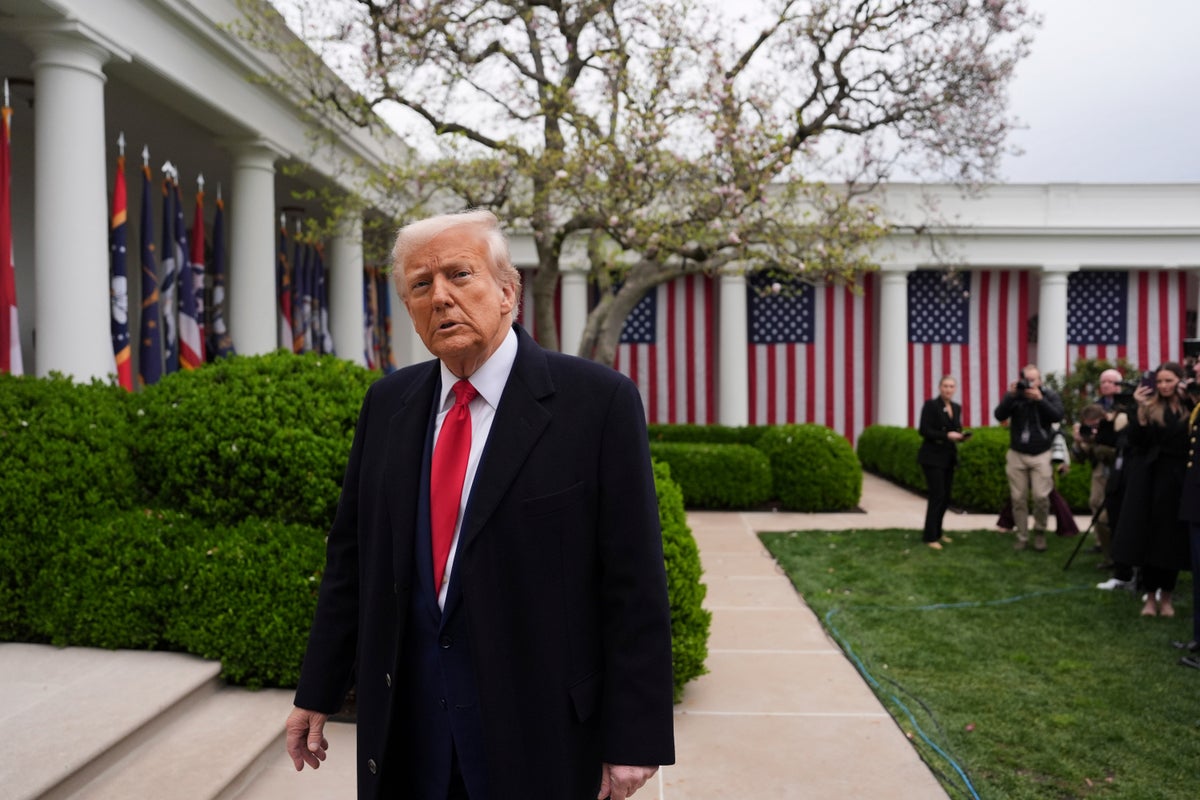Half of British adults say they are now less likely to buy American products in the wake of Donald Trump’s tariffs on the UK, a new poll has revealed, sparking calls for the government to back a ‘Buy British’ campaign.
It comes just hours after both Downing Street and the chancellor rejected such a proposition, with Rachel Reeves warning against the UK becoming “inward looking”.
Meanwhile, the prime minister’s official spokesperson said Sir Keir cannot sympathise with the British public’s support for a ‘Buy British’ campaign, warning such a move would “go against our agenda as an open trading nation”.
Polling conducted by Savanta on behalf of the Liberal Democrats, found that six in 10 (59 per cent) adults would support a campaign to buy more British-made goods following sweeping tariffs imposed by the US president.
Those of pension age were the most likely to support a ‘Buy British’ campaign with a staggering 81 per cent of those over the age of 65 saying they backed such a movement. Just 13 per cent of the public said they would oppose a campaign of this nature.

It comes after the ‘Buy Canadian’ movement in Canada sparked a surge in people buying locally produced goods, with prime minister Mark Carney urging people to do so wherever they can.
But speaking in the Commons on Tuesday, Ms Reeves said that “ratcheting up barriers to trade, ratcheting up tariffs will not be in our country’s interests, whether that’s in inflation or indeed for supply chains”.
She added: “In terms of buying British, I think everyone will make their own decisions.
“What we don’t want to see is a trade war, with Britain becoming inward-looking, because if every country in the world decided that they only wanted to buy things produced in their country, that is not a good way forward.”
Asked if the prime minister would echo his chancellor’s sentiment, Sir Keir’s official spokesman said: “Of course. We’re an open-trading nation.
“That is something the prime minister and the chancellor have previously said, and we want to see fewer trade barriers around the world, such that we’re continuing to support our economy.
“At the same time, we also continue to prioritise and support British manufacturers, British producers.
“We have a significant programme of support, whether it’s farmers, whether it’s manufacturers, as yesterday with supporting the car industry. So, we can take a two-pronged approach.
“We can be an open-trading nation whilst also supporting British producers and manufacturers.”
Pressed on whether the PM can sympathise with public support for a ‘Buy British’ campaign, the official said: “No. That goes against our agenda as an open trading nation. Business have been very clear they don’t want to see a knee-jerk reaction, that includes retaliation.
“We’ll keep all options on the table but we want to see lower trade barriers, not higher trade barriers.”
The Liberal Democrats have piled pressure on the government to launch a campaign urging people to shop local and back British-made goods, with Treasury spokesperson Daisy Cooper urging the PM to “listen to the public” and launch a “national effort to back British businesses”.
Ms Cooper added: “This would send a collective message to the White House that we are not prepared to simply cower in the corner while Donald Trump takes a wrecking ball to people’s jobs and living standards.
“That needs to be combined with a clear plan to unleash the potential of our businesses and high streets, including scrapping the disastrous jobs tax and reforming the broken business rates.”
It comes after the US president said he is not looking to pause the tariffs which have plunged global markets into turmoil.
The trade taxes Mr Trump imposed on goods from most countries resulted in the value of US stocks dropping sharply when markets opened on Monday, following falls in London and across Europe and Asia earlier.
The UK government is currently attempting to negotiate a deal which would exempt British industry from the sweeping tariffs, with Downing Street saying the talks are at an “advanced stage”.
But asked by reporters in the White House if he was open to pausing tariffs to allow for negotiations, the US leader said: “We’re not looking at that.”
Mr Trump also suggested that the levies could be both a negotiating tool to extract concessions out of other countries, as well as a means to raise cash for US coffers.
Savanta interviewed 2,170 UK adults online between April 4 and April 6 2025.

